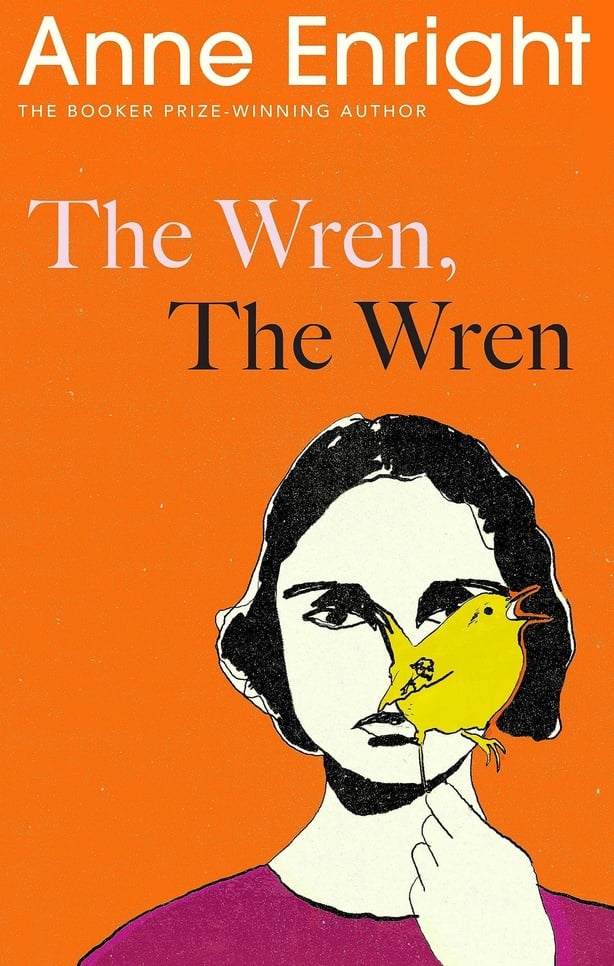When the Man Booker Longlist was announced last month, conversation erupted on social media around how many Irish writers were on the list.
The Times announced that Ireland for all the size of the island was 'punching above its weight.’ Ireland, north and south of the border, is producing some of the most exciting literature around. The list could have been filled with brilliant new Irish writing, from Michael Magee’s Close to Home to Nicole Flattery’s Nothing Special.
However, despite all this, there is one omission that towers above the rest: Anne Enright’s The Wren, The Wren, a multi-generational masterpiece that unspools complicated family histories.
We need your consent to load this rte-player contentWe use rte-player to manage extra content that can set cookies on your device and collect data about your activity. Please review their details and accept them to load the content.Manage Preferences
Listen: Mary McGill reviews The Wren, The Wren for RTÉ Arena
It begins with Nell, who is Carmel’s daughter and granddaughter of the internationally acclaimed poet Phil McDaragh. She’s living in squalid conditions in Dublin, ironically writing for an aspirational social media account about Indonesian islands. This bleakness is compounded when she meets Felim, but quickly their relationship descends into abuse, as degrading sexual power dynamics become routine. Nell thinks: ‘He controls the thing he loves. He is precise, I am the chaos.’ Nell doesn’t quite know herself as the abuser builds in his confidence. In a bid to not lose herself entirely, she seeks solace in her grandfather’s poetry, teasing out a relationship there which did not exist.
We need your consent to load this rte-player contentWe use rte-player to manage extra content that can set cookies on your device and collect data about your activity. Please review their details and accept them to load the content.Manage Preferences
Listen: Miriam O'Callaghan talks The Wren, The Wren with Anne Enright
Carmel’s relationship with her father is an uneasy one. He left her and her sister behind for America as her own mother died. He was abusive, ripping the bedsheets off her mother’s sickbed. But still, his poetry is of the natural world, of his great loves (any of his wives). His poetry collection is spliced throughout the novel. Each poem a pastiche of romantic Irish poetry, concerned primarily with land, nature, wildlife. But, for Carmel, violence and poetry become bound together, as ‘if her father stopped writing poetry, then something awful would happen. The veil of reality would be ripped away.’ But the reality is awful: it’s all a façade, all a show. In the brief few chapters told through Phil’s perspective, we are shown a fickle man, ready to turn his back on what he loved when he sees the tide of opinion changing.
This novel is a treatise in challenging misogyny, shown clearly through a letter from Phil’s American ex-wife, Connie, to Nell. Connie tells her that she loved Phil ‘because of his ‘badness’’ but that ‘the changes since then (when she was married to Phil), in the world, and in [her] as a person, have been so welcome and right.’ No doubt, Enright’s Man Booker Prize winning novel, The Gathering, The Wren, The Wren will echo within readers’ minds long after they finish the last page.

The Wren, The Wren is published by Jonathan Cape


